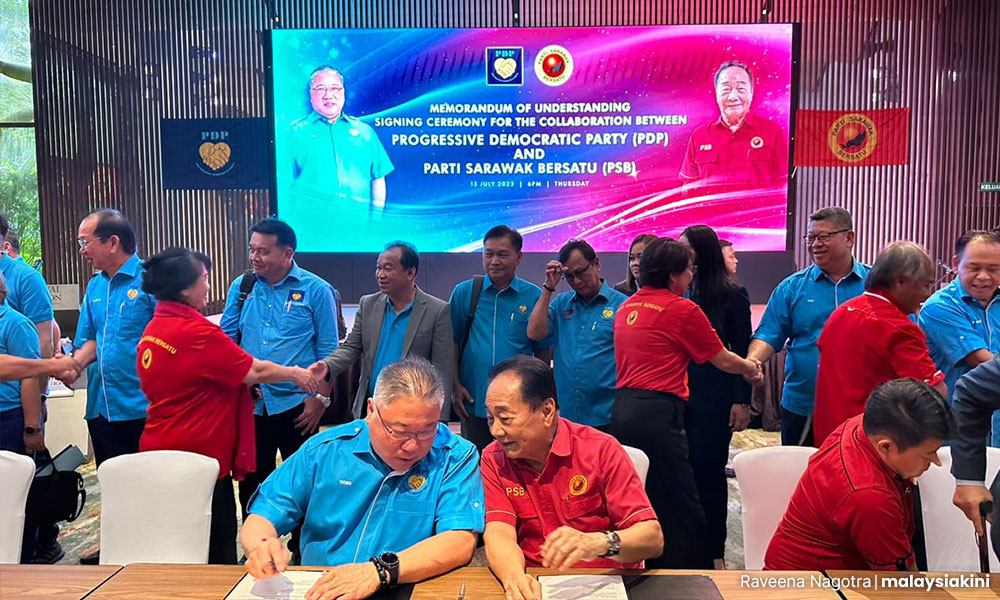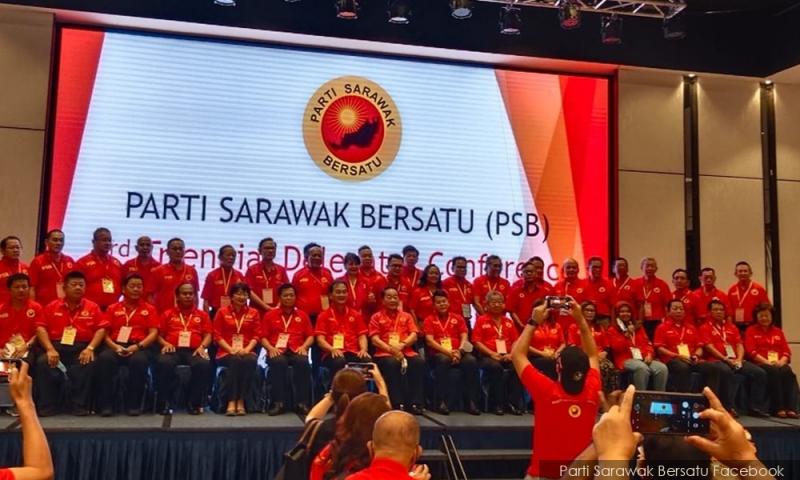LETTER | Can GPS trust PSB this time?
LETTER | It's mating season for the Parti Sarawak Bersatu (PSB) and Progressive Democratic Party (PDP).
On Feb 17, PSB held an extraordinary delegate conference in Sibu, attended by 400 of its delegates across the land of the hornbill. The meeting was ostensibly held to table the dissolution of the almost-ten-year-old party, and the members were to join the PDP en bloc. PDP is a ruling Gabungan Parti Sarawak (GPS) component party.
Real talks about the merger have been going on since 2023. In July, the Wong Soon Koh-led PSB signed a memorandum of understanding (MOU) for collaboration with PDP, led by Tiong King Sing. The MOU was signed in Kuala Lumpur, nearly 970km west of Kuching, GPS’ centre of operations.
In December, GPS chairperson Abang Johari Openg revealed that the merger between the two parties had not received a seal of approval from the coalition’s supreme council leadership. It is yet to be known avowedly hitherto whether the aforementioned matter has achieved a definitive decision or otherwise.
However, just recently, on Feb 18, Abang Johari was seen publicly with both Tiong and Wong during the PDP-organised Chinese New Year open house in Bintulu. A few top guns from GPS and PSB can be seen together (including PSB deputy president Johnical Rayong) during the event. Could this gesture signal GPS's blessing for the merger?

Formation of UPP, then PSB
It was not until 2019 that PSB adopted its current name. Before that, it was called the United People’s Party (UPP), a splinter from the Sarawak United People’s Party (SUPP). The UPP was formed in August 2014 after Wong’s sacking from SUPP three months prior.
As the oldest political party in Sarawak, SUPP, which was established by 40 delegates across Sarawak in 1959, has a tangled and complicated history. The party's long-gestating crisis can be traced back to the 2011 Sarawak state election.
The pivotal election was also the year in which former Sarawak deputy chief minister and the then president of SUPP, George Chan, was unseated in the battle of David and Goliath in Piasau, Miri.
After the demeaning defeat and disastrous show of SUPP in the state election, Chan decided to tender his resignation as the party’s number one.
Both Wong and Peter Chin would later emerge themselves as potential successors - even though the latter had announced that he would not contest the triennial delegates conference (TDC) held by the end of the year but later changed his mind after a closed meeting with 310 branch leaders.
The decision upsets Wong, hence marking the start of a bitter political feud between the two SUPP stalwarts. SUPP was divided into two camps - Wong’s and Chin’s.
Wong's camp comprises several SUPP principal federal and state representatives, namely Tiong Thai King, Francis Harden, Lee Kim Shin, Jerip Susil, Ranum Mina, and Johnical. Meanwhile, joining Chin are Sim Kheng Hui, David Teng, Alfred Yap, Sebastian Ting, and Ding Kuong Hiing.
In the end, Chin won unopposed as president when Wong decided to boycott the party election that year. But the conflict within the party is far from over. In May 2014, Wong was ejected from SUPP and defected to the Sarawak People’s Energy Party (Teras), a party he co-founded with William Mawan, former SPDP president.
Within three months of joining Teras, Wong then announced his newly formed party, UPP. Teras and UPP would continue to work closely. Thereafter, UPP, then renamed PSB, continued to be pro-government, retaining Wong in his ministerial post.
In 2019, Wong resigned as Sarawak's second finance minister and international trade and e-commerce minister, switching PSB’s stance to independent. The resignation allegedly came after several parties within GPS voiced their concerns and discomfort over PSB’s possible inclusion in the newborn coalition, especially after the “kidnapping” of several disgruntled former leaders from GPS component parties.
PSB and its survival through PDP
It is very interesting to note that these merger talks between ‘PSB and PDP’ have been going around since the “UPP and SPDP” era. In 2016, UPP secretary-general George Lo revealed a grand scheme to merge UPP, SPDP, and TERAS into one political entity that is BN friendly. However, I am sure that this plan is scrapped and not sure what’s the reason behind it.
The GPS coalition consists of four component parties. The dominant-Parti Pesaka Bumiputera Bersatu Sarawak (PBB), SUPP, Parti Rakyat Sarawak (PRS), and PDP. The GPS coalition was formed in 2018 to separate itself from the national-level party BN after the 2018 general election.
SUPP president Sim Kui Hian, in a recent statement (Feb 8), offers an open door to PSB members to join the party. PRS president Joseph Salang revealed last year that his party was also approached by PSB to merge, but lamented that any move to integrate must first be consulted with GPS chairperson Abang Johari.
PSB members’ acceptance into the PDP and the GPS coalition as a whole depends on the penitence of several individuals within PSB who still play “old politics”. PSB (later PDP) must repent of its sins and pledge to stop the ‘kidnapping’ of leaders from other component parties.
Ergo, PDP president Tiong has the ball in his court. He needs to play astutely - by the book or break the laws without the referee noticing. In accepting new allies, the feelings of the prior allies must be taken into consideration.
So, can PSB be trusted again?
The views expressed here are those of the author/contributor and do not necessarily represent the views of Malaysiakini.
RM12.50 / month
- Unlimited access to award-winning journalism
- Comment and share your opinions on all our articles
- Gift interesting stories to your friends
- Tax deductable
